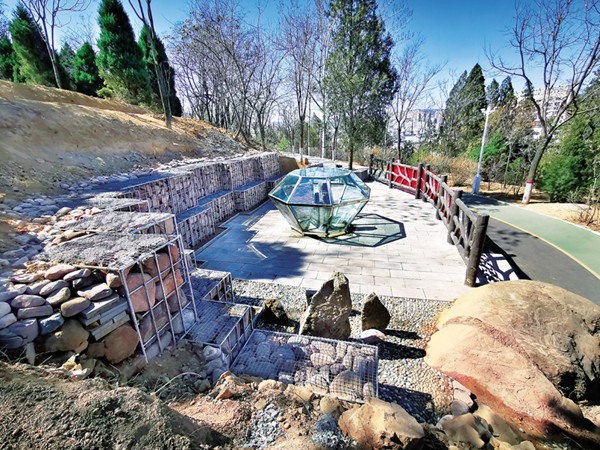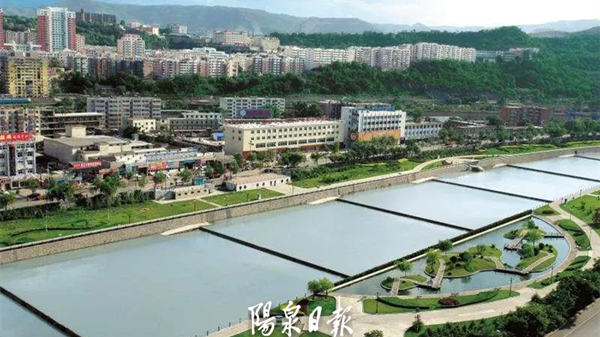Fossil science park to open in Yangquan

Two cordaite fossils are displayed in a glass container at the park. [Photo/yq.news.com]
The Fossil Popular Science Park in Yangquan city -- in North China's Shanxi province -- will soon be officially opened to the public free of charge, according to local officials.
In March last year, early Permian wood fossils dating back 295 million years ago were found to the west of the north gate of Nanshan Park in the city.
To better protect and develop fossil resources, the Yangquan planning and natural resources bureau developed the outdoor fossil popular science park with an area of about 100 square meters on site to promote the popularization of paleontology fossil science and further improve the cultural life of locals.
Officials said the park mainly displays fossil limestone containing large amounts of marine animal fossils and coal-forming plant cordaites fossils.
Walking paths whose surface features fossils have been laid out all over the park. As clear water is poured onto the tiles, the gray tiles will immediately show white circles, said Bai Zhijun, a staff member of the Yangquan planning and natural resources bureau.
"These are tiles formed by sea crinoid stem fossils. Visitors can see the white coin-like texture of the calcite, which is very beautiful," Bai explained.
At the center of the park are two magnificent cordaite fossils displayed in a jewel-shaped glass cover.
Cordaites are mainly plants forming coal in Yangquan city, a high-quality anthracite production hub. By directly viewing natural resources like cordaite fossils, visitors can learn about the origins of coal, understand the history of the earth, the evolution of the environment and the evolution of life.
In view of the fact that most paleontological fossils cannot be stored outdoors, the park will solve the problem through the development of online methods. In the future, visitors can view a lot of content about paleontological fossils online by scanning QR codes in the park, according to Bai.
Yangquan has huge reserves of fossil resources with quite a number of unique fossil-concentrated areas. In recent years, the city has attached great importance to the protection, research, development and utilization of paleontological fossils.
"Yangquan has invited many experts from the Chinese Academy of Sciences to assist in the study of paleontological fossils and to seek breakthroughs in the protection and development of the city's fossils," said Wang Guangrong, deputy director of the Yangquan planning and natural resources bureau.
Officials said fossil education can improve the ability of young people to explore and discover. At the same time, making full use of unique fossil resources and carrying out research activities can form new cultural tourism resources and further enhance the reputation of Yangquan.





